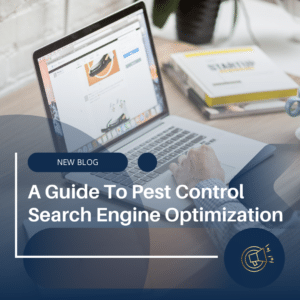
How to pick a marketing agency
How to pick a marketing agency Here’s a truth that can be hard to swallow: Even the best product or service in the world won’t
Digital marketing is a pillar of business growth and customer engagement in the digital age. It’s not just about being present online; it’s about making a significant impact. Digital marketing harnesses the power of digital avenues such as social media, websites, search engines, email, and text messaging to generate awareness, spark interest, and drive sales for your products or services.
Understanding the nuances of digital marketing tactics is crucial for tailoring strategies that resonate with your target audience. This guide delves deep into the most effective digital marketing strategies, offering you the best practices to achieve your business objectives and optimize your presence in the digital realm.
Digital marketing offers an array of advantages over traditional marketing. It is not only more cost-effective but also provides the ability to reach a broader audience in a shorter time frame. As technology has advanced, consumers have increasingly gravitated towards tablets, phones, and computers—domains where digital marketers have established a strong foothold.
In essence, digital marketing is the utilization of digital channels by businesses to market or promote products and services to consumers. These channels include various websites, mobile devices, social media, search engines, and other digital platforms. The shift towards digitalization has been so profound that the once bustling shopping crowds in markets have dwindled, with a surge in online shopping observed instead. This shift underscores the necessity for businesses to establish a robust online presence to connect with their audience effectively.
To build a strong digital marketing plan, learn about the most effective online marketing techniques. Here are 6 key types:
Search Engine Optimization (SEO) is a fundamental aspect of digital marketing that focuses on enhancing a website’s visibility in organic search engine results.
Every day, Google processes roughly 8.5 billion searches, offering a vast array of prospects for companies aiming to advertise their goods and services.

Achieving a high ranking on Google is crucial for increasing your website’s visitor count, so understanding and implementing Search Engine Optimization (SEO) strategies becomes essential.
It’s about understanding what people are searching for online, the answers they seek, the words they’re using, and the type of content they wish to consume. By knowing these factors, SEO can help connect your business to your target audience.
At its core, SEO involves optimizing various elements of your website to make it more attractive to search engines like Google. This includes tweaking the website’s technical setup, content, and how other sites link to it. The goal is to ensure that search engines can easily find, index, and understand your content and then present it to users searching for related information.
Social Media Marketing (SMM) is a dynamic and integral component of digital marketing that leverages the power of social platforms to promote brands, build customer relationships, and drive sales. With over 4.74 billion active users worldwide, social media presents an unparalleled opportunity for businesses to reach a vast audience where they spend significant time.
At its essence, SMM is the strategic use of social media networks to connect and engage with existing and potential customers. It goes beyond mere advertising; it’s about fostering two-way communication and building a community around the brand. This approach helps in creating brand loyalty and advocacy among the audience.
PPC advertising, short for Pay-Per-Click, is a straightforward concept where advertisers pay a fee each time their ad is clicked. The cost per click is influenced by the advertising platform, the expected traffic, and the competition for ad space.
Google Ads is the most prominent PPC platform globally, often used alongside SEO strategies. Ads on Google are displayed above organic results, providing a strategic advantage that can lead to increased website traffic.
However, Google Ads isn’t the only option for PPC campaigns. Advertisers can also use the Microsoft Search Network for ads on Bing and its partner sites, as well as various social media platforms like YouTube, Facebook, Instagram, Snapchat, LinkedIn, Amazon, and TikTok, expanding the reach of their advertising efforts.
With over 310 million smartphone users in the U.S. alone, the rise of mobile marketing as a key digital marketing strategy for businesses is no surprise.
Mobile marketing is predominantly executed through text messaging, or Short Message Service (SMS). With text message open rates soaring as high as 98%, the efficacy of mobile marketing is evident. Although SMS remains the primary method for mobile marketing, smartphones also receive notifications from mobile applications and social media platforms. The scope for business applications through mobile marketing is broadening daily, offering new avenues for customer engagement and outreach.
Email marketing is a pivotal element of digital marketing strategies that you should consider integrating into your promotional efforts. Data from Statista reveals that, on average, companies gain a minimum return of $32 for every dollar invested in email marketing. This figure can soar to $45 in industries like retail, e-commerce, and consumer goods.
For email marketing to yield results, it’s essential to devise a method for amassing email addresses from both existing customers and potential leads. A common practice among businesses is to gather emails during every interaction with customers, often providing an exclusive perk for those who sign up for their mailing list. Similarly, your company’s website is an excellent platform to entice visitors with incentives, thereby expanding your email database.
Content Marketing is a strategic approach within digital marketing that focuses on creating and distributing valuable, relevant, and consistent content to attract and retain a clearly defined audience — ultimately, to drive profitable customer action. Unlike traditional marketing, which often interrupts the audience with direct sales pitches, content marketing provides material that the audience finds genuinely useful and interesting.
Content marketing is about storytelling and providing information to educate consumers, not just selling them a product or service. It’s a long-term strategy that builds a strong relationship with your target audience by consistently providing them with high-quality, relevant content.
Effective content marketing requires deeply understanding the target audience’s needs and interests. Marketers must craft content that appeals to their audience and stands out online. This could be through blog posts, videos, podcasts, infographics, or social media posts. The key is to provide content that is so valuable that people want to share it and engage with it.
The role of a digital marketing agency like Growthbound Marketing is indispensable when considering the expertise required to effectively employ these strategies. Such agencies bring a wealth of specialized knowledge, from the intricacies of SEO to the nuances of social media engagement, which is vital for developing impactful digital campaigns. They provide the strategic direction and creative execution to elevate a brand in the competitive digital arena.
In essence, partnering with a digital marketing agency is not merely about outsourcing tasks; it’s about forming a collaborative relationship that can unlock new opportunities and lead to unparalleled success in the digital domain.

How to pick a marketing agency Here’s a truth that can be hard to swallow: Even the best product or service in the world won’t
To ensure that your marketing dollars are contributing to your pest control company’s growth, You have to ensure profitability. There are a lot of ways to ensure profitability but in this blog post we will tackle just three of them and if you implement them early, you are a lot more likely to fill your routes with ideal customers that love to live pest free.

Growing a pest control business involves online strategies. Partnering with a pest control digital marketing agency can enhance your online visibility further.

Marketing automation is a digital marketing strategy that uses technology to automate repetitive marketing tasks and workflows.

Customer journey is often visualized through a concept known as the digital marketing funnel. This visually represents a potential customer’s stages before purchasing or taking a desired action.

Most of the time, the company won’t have to pay for anything in email marketing. They can easily build their contact lists on their website when their visitors subscribe to them. They can also buy contact lists from other businesses, which can only cost a few bucks for thousands of emails. So if you’re considering doing email marketing for your pest control business, below are 10 tips you can apply to your campaign.

Schedule a 15-minute discovery call to discuss how GrowthBound Marketing can help your business grow.

Grab your free copy of our Ultimate Pest Control Marketing Guide and uncover 10+ years of pest control marketing secrets.
Our Promise
We love working with and growing local businesses. If we can’t help, we’ll send you to someone who can.